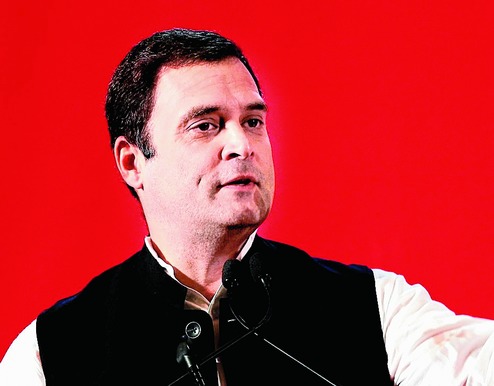
New Delhi: Congress president Rahul Gandhi on Sunday alleged that the Narendra Modi government's decision to issue orange passports to migrant workers reflected the BJP's "discriminatory mindset".
The foreign ministry had on Friday announced the government would soon introduce orange passports for those who need "emigration check required (ECR)" stamped on their passports. Non-ECR passports will continue to be issued in the existing navy blue jackets.
All through Saturday, social media witnessed chatter expressing dismay at the move that marks out ECR passport holders, mostly people from poor families who have not cleared Class X. They require the stamp on their passports for employment in 18 countries, including the Emirates, Saudi Arabia, Qatar, Jordan and Thailand.
Cottoning on to this, Rahul tweeted on Sunday: "Treating India's migrant workers like second-class citizens is completely unacceptable. This action demonstrates BJP's discriminatory mindset."
Former Jammu and Kashmir chief minister Omar Abdullah quickly joined the conversation.
Quoting Rahul's tweet, he posted: "Maroon for the VVIPs & assorted other leaders, white for the officials, dark blue for the aam janta & orange for the second-class citizens. Even our passports have developed a caste/class system."
Diplomatic passports issued to diplomats and senior government officials come in maroon jackets while white passports are issued to individuals representing the government abroad.
The only explanation the ministry has offered for colour-coding migrant workers is that it has decided to abolish the last page of the passport that bears personal details, including ECR status where applicable.
This decision is apparently a response to objections raised by single parents and those with adopted children to such information being put out in the public domain.
The ECR status is stamped on the passports of those who have not cleared matriculation unless they are children of government employees or pay income-tax or agricultural tax.
ECR passport-holders need a clearance from the protector-general of emigration to take up employment in the 18 specified countries, which lack strict laws to regulate the entry or employment of foreign nationals.











